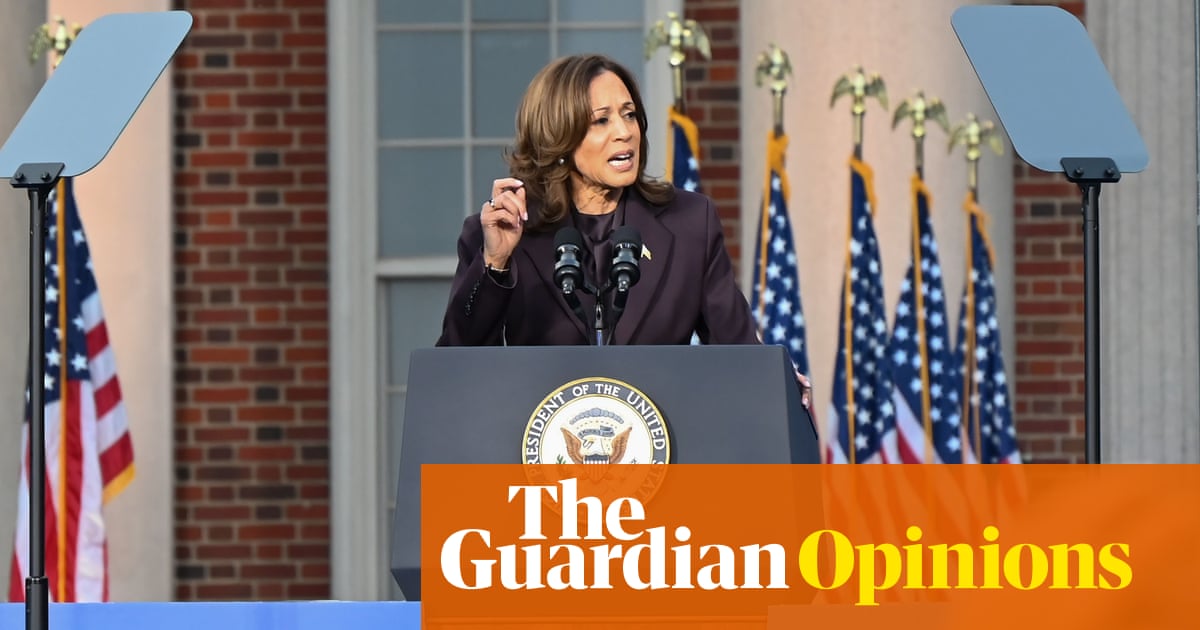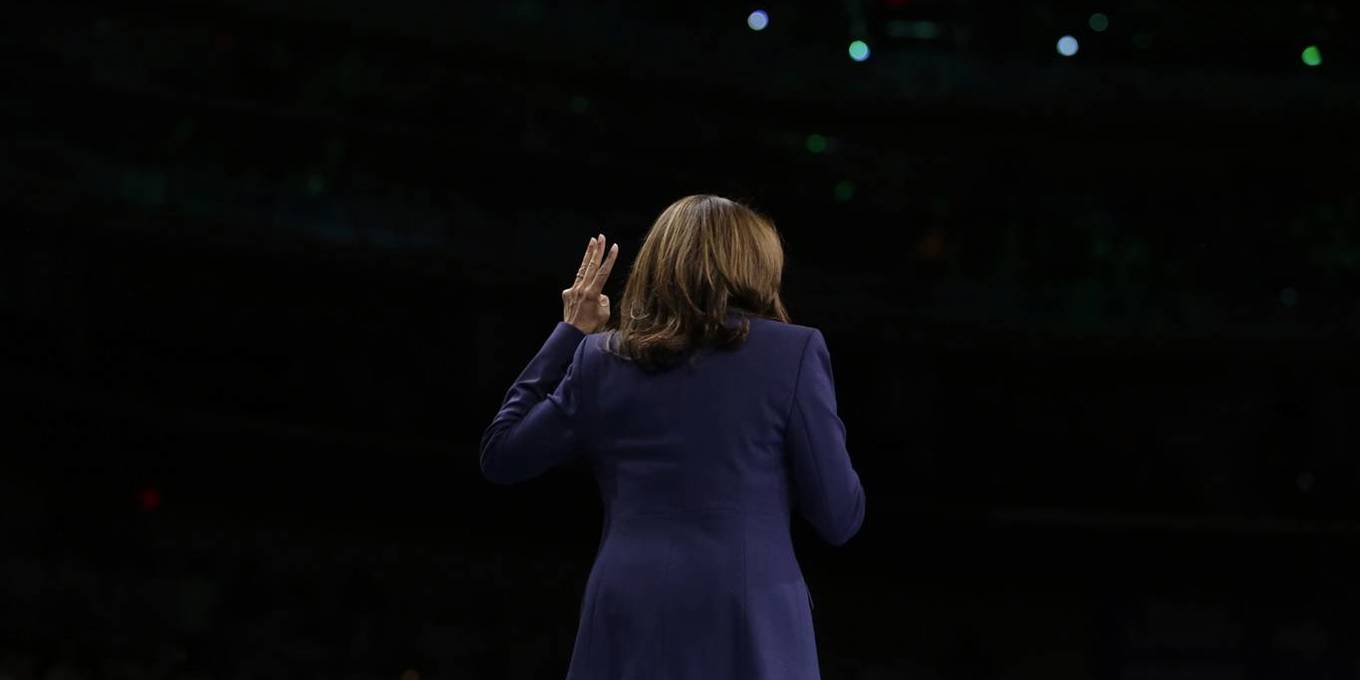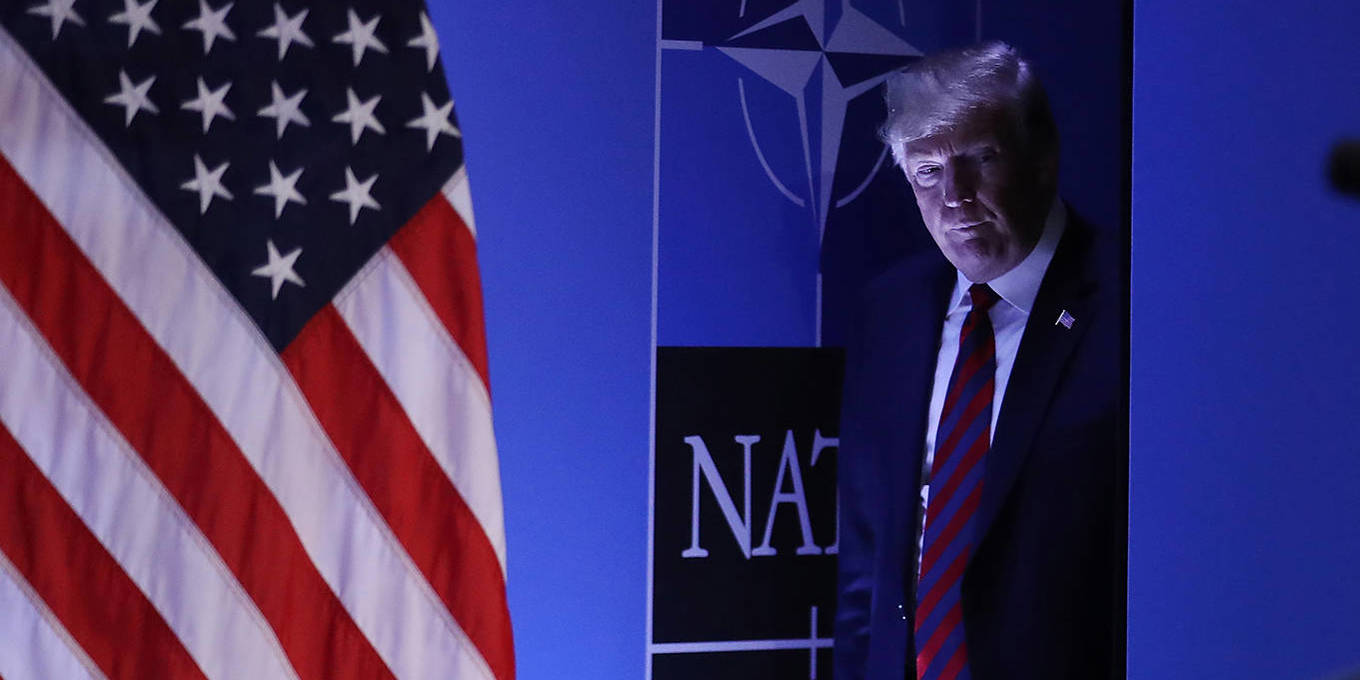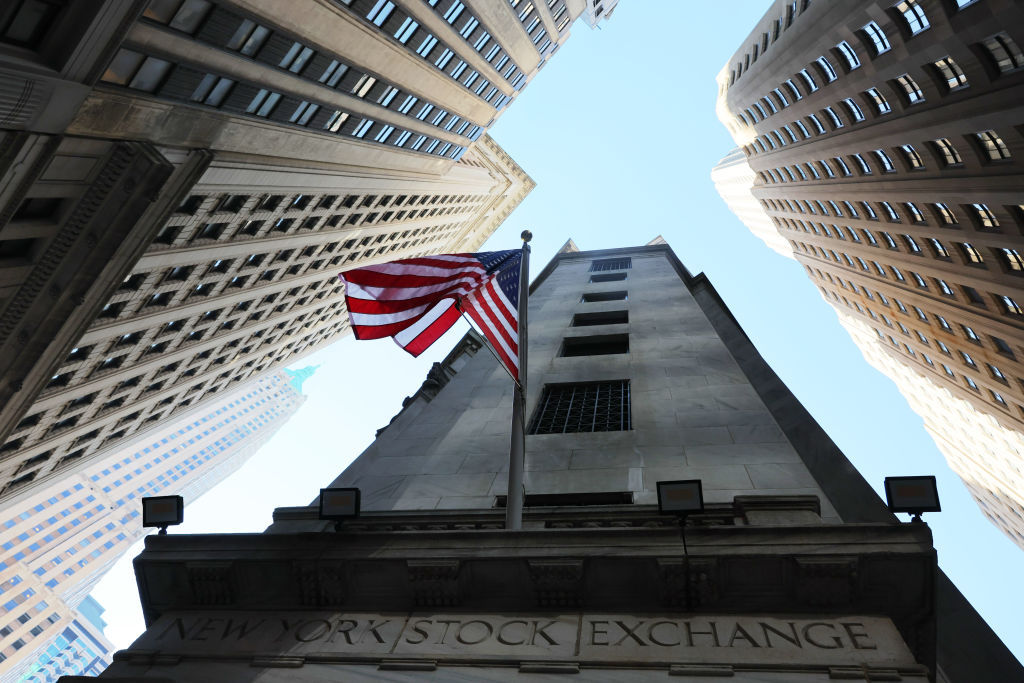Long Read (Analysis)
In the first year of my bachelors’ degree, I was handed an assignment to analyze an academic article with a title I found very peculiar at the time. The article, entitled “The End Of History?”, was written by political scientist Francis Fukuyama and published in The National Interest in 1989.
My initial reaction was one of bewilderment. I was an 18-year-old at the time, and the article was handed to me sometime after Donald Trump’s first electoral victory in November 2016. The title sounded apocalyptic, suggesting that history and human evolution had reached their final frontier.
I did not put much thought into it at the time, beyond the minimum needed to analyze the article. In retrospect, I should have contemplated more deeply on what the article suggested. As I am writing this now, one week after President Trump won a resounding defeat over his opponent Vice President Kamala Harris, my mind returns to Fukuyama’s subsequent book on the article to see if lessons can be learned from his bold declaration.
Trump’s victory is not an isolated incident in the United States. Trump’s victory has been followed by right-wing victories in the European Parliament and other key EU member states such as the Netherlands, France and Italy. I now believe there is a complacency within Western liberalism that precludes it from looking critically at their system and how it may be failing. Fukuyama’s article can offer valuable insights as to why Western liberalism fails to look critically at the ideas that underlie the concept of liberalism.
The 1989 article was criticized at the time because detractors saw Fukuyama as arguing that human “events” are over. This is where I feel that those early commentators, and media pundits today who are flabbergasted at the scale of Trump’s victory, were and are wrong from the start.
In his book, Fukuyama presented a conception of history, based on the works of Hegel and Marx, as a “single, coherent, evolutionary process” that guides society’s transformation to achieve a governance method that can fulfill the common goals of a people. Hegel argued (and this is central to Fukuyama’s understanding of history) that mankind possesses an inherent “struggle for recognition.” What separates humans from animals, as Hegel understands it, is that mankind has both material needs and the need to be seen as possessing worth. A Hegelian conception of history is thus the struggle for human beings to assert themselves and even risk their lives to accomplish this goal, going beyond survival with a drive towards self-respect. Hegel thus believed history moves dialectically, each evolution in mankind a step towards the ideal society. As such, for Hegel, the ultimate goal of mankind is to establish a state that bases itself on mutual recognition of dignity and respect.
Marx, on the other hand, adopted Hegel’s dialectical approach to history, but with materialism and economic relations as the key drivers of what he saw as historical evolution. Marx argued that history is driven by tension between the ruling class and the “oppressed” working class. He believed that this class division propels historical change, as each stage of society’s development contains contradictions that eventually lead to its downfall and replacement with a more advanced system. For Marx, the end of history is a communist, classless society.
Understanding this basic debate contained in Fukuyama’s writings is an important first step in interpreting Fukuyama. He wrote his first article and its subsequent book in the closing days of the Cold War, a moment where Western liberalism and capitalism seemed set to triumph over the Soviet Union’s totalitarian and command economy. Fukuyama aligned himself more closely with Hegel’s concept of the “ideal” liberal society, as he argued that Hegel’s idea of a “struggle for recognition” is one that is very prominent in his own conception of the modern liberal state. Fukuyama also incorporated Kant’s belief in history’s objective being to find a “society in which freedom under external laws is associated in the highest degree with irresistible power, i.e. , a perfectly just civic constitution, is the highest problem Nature assigns to the human race.” This, along with Hegel’s “struggle for recognition” thus led Fukuyama to see liberal democracy as a perfect method for achieving this. Liberal democracy is built upon the respect of individual rights and the drive towards equality.
In contrast, Fukuyama viewed Marxism in a different manner. While Marx saw ideology as shaped by material conditions, Fukuyama argued that it was ideas that drive the ideology and political systems that ultimately set a path towards historical progress. While Marxism rightly points out a human being’s desire for material wealth and economic development, Fukuyama believed that the Hegelian conception of liberal democracy is what ultimately results in “the end of history,” because human beings naturally want not only material wealth but also individual freedom and recognition of their rights. Fukuyama argued that most of the struggles in the Cold War were in essence a battle for recognition. Communism failed because although communist ideology proposed the establishment of an egalitarian society that would transcend the class stratifications inherent in capitalist systems, in practical implementation, communist states frequently curtailed individual liberties and mandated ideological conformity, ultimately failing to accommodate the intrinsic human aspiration for individual recognition and social acknowledgment. Fukuyama noted in 1989 that the disintegration of communist regimes across Eastern Europe, alongside China's market-oriented reforms, illustrated what he identified as a pivotal shift away from centralized, ideologically stringent governance. According to Fukuyama, these transformations signify not merely the collapse of communism but also the depletion of any substantial ideological alternatives to liberal democracy.
Fast forward to the 21st century. Can we really say that liberalism has either fulfilled mankind’s desire to possess enough material wealth, or respected individual rights and freedoms? Is liberalism really the end point of mankind’s ideological evolution? The answer to that would seem to be a resounding no. Liberalism, it can be argued, has fallen short of engaging in the dialectical process that Hegel posits as essential for historical evolution. Faced with its own excesses, liberalism has not demonstrated the self-correction one might expect, particularly in light of the ideological fervor of the 1990s. The dissolution of the Soviet Union in 1990, the triumph of Operation Desert Storm in 1991, and the formation of the European Union and single market in 1992 all contributed to an almost euphoric confidence in liberal ideals. That period also marked the rise of interdependence and globalization as central tenets of international relations, accompanied by the advent of the internet, which fostered optimism about the potential for cross-cultural understanding and cooperation. Many anticipated that increased global connectivity would gradually erode national borders, paving the way for a more integrated world.
In the book “Why Liberalism Failed,” Patrick J. Deneen made a compelling case for liberalism having collapsed under its own weight. The optimism of the 1990s has mostly dissipated, replaced by an aura of disenchantment and disillusionment. The American people have less trust in their government, with politics animated by cynicism and polarization between the two ends of the political spectrum that tears apart the social fabric. The integrity of elections has been called into question, with claims of elite rigging seen as symptomatic of a corrupt system.
Denen argued that liberalism’s current downward spiral is, ironically, the result of what Fukuyama believed at the time (also widely shared) was liberalism being the final form of mankind’s ideological evolution. It collapsed under its own success. Liberalism ironically exposed its own inherent contradictions. Mankind’s pursuit of what Hegel called “recognition” — promoting self-autonomy and mastery of nature — came at very high costs. The prioritization of individual autonomy inherent in liberalism has progressively eroded the foundational structures of traditional social cohesion. Institutions such as the family, local communities, and religious organizations, once integral to shaping identity and fostering reciprocal support, are increasingly perceived as discretionary or restrictive. Relationships traditionally grounded in duty and obligation have increasingly become voluntary and consent-based in nature.
This paradigm shift has culminated in pervasive social isolation, leaving individuals disconnected from the broader community. Liberalism’s emphasis on individual choice has positioned personal gratification as a dominant societal value, often also prioritizing immediate satisfaction over long-term well-being. This inclination is further reinforced by consumer culture, which, underpinned by market liberalism, exacerbates a culture of hedonism and consumerism. The paradox is that, while liberalism exalts individual autonomy, it simultaneously necessitates the expansion of state power to oversee and regulate the very liberties it seeks to promote. Denen argued thus that liberalism’s end game, or Fukuyama’s “ideal” society, could not “perpetually enforce order upon a collection of autonomous individuals increasingly shorn of constitutive social norms, nor can it provide endless material growth in a world of limits.”
Denen also argued that liberalism created “new aristocracies,” which is the very thing liberalism sought to replace. Liberalism’s promise of social mobility and equality has instead fostered rigid economic and social stratifications. The divide between an elite class (characterized by stability and affluence) and marginalized groups (consigned to precarity and stagnation) underscores the persistence of entrenched hierarchies under the liberal paradigm. Individuals who succeed in the liberal system form a global elite concentrated in wealthy urban areas. They benefit from stable life, access to higher education, and financial security, which are further enhanced by inherited wealth and opportunities passed between generations. In contrast, those living in economically disadvantaged regions or working in low-paying service-sector jobs face stagnant incomes, high levels of debt, and limited social mobility. This majority, often residing on the outskirts of affluent cities, remains excluded from the benefits enjoyed by the elite. The liberal order perpetuates a deeply stratified society under the guise of shared prosperity and mobility. The failure of liberalism to acknowledge the dialectical nature of history is their refusal to look at the fact that social mobility is beyond the reach for most. This system sustains itself by promoting the illusion that inequality is acceptable when coupled with the theoretical possibility of upward mobility, an opportunity that is increasingly unattainable for the majority.
Liberalism’s inherent contradictions can be seen as having been manifested in the 2016 and 2024 victories of Donald Trump. New York Times columnist David Brooks argued that the educated elite has risen to a position of dominance, shaping policies and cultural norms to align with its interests and priorities. In doing so, it has largely disregarded the needs and perspectives of those who exist outside these well-established circles. This is in line with Denen’s “new aristocracy” argument. America’s wealth is concentrated in cities like San Francisco and Austin, leaving rural areas behind. The search for recognition is only afforded to America’s elites and college graduates, leaving those unable to graduate from high school suffering from cultural devaluation.
Brooks argued that, as a result, many Americans increasingly view their lives as unfolding within a "dark world," characterized by pervasive threats and a sense of betrayal. In this context, the Democratic Party itself has struggled to fulfill its mission of addressing systemic inequality. The progressive wing of the party prioritized issues related to race, gender, and LGBTQ+ rights, and its neglect of class disparities alienated significant portions of the American electorate.
The traditional Democratic coalition in elections has disappeared, with many working class voters moving to the Republican Party. The election saw notable Republican gains among Black and Hispanic working-class men, for whom concerns about class and economic opportunity often take precedence over identity politics. For these voters, issues such as job security, economic mobility, and community stability outweigh the emphasis on racial and gender equity that dominates elite liberal discourse.
This trend underscores a widening gap between the priorities of the political elite and the lived experiences of a working class increasingly disillusioned by globalized markets, stagnant wages, and the erosion of community structures. This alienation allowed Donald Trump to position himself as a populist voice, resonating with many through his rhetoric of betrayal. By doing so, Trump succeeded in forging a multiracial, working-class coalition that disrupted traditional political dynamics, making notable gains even in historically Democratic urban centers. Trump’s critics often deride him as “a threat to democracy,” but to significant portions of the alienated American electorate he is a tool of what Daniel McCarthy, another New York Times columnist, termed a “creative destruction” of America’s existing political institutions.
The Trump victory is a “vote of no confidence” for America’s governing model, and by extension, a very public and resounding rejection of liberalism. Trump’s return to power represents a profound challenge not only to the political establishment but also to the nation as a whole. It compels Americans to confront the shortcomings of their institutions and reflect on the forms of leadership and governance capable of addressing the complexities of a divided and volatile era.
In an article for the Financial Times written after Trump’s recent victory, Fukuyama wrote that neoliberalism and “woke” liberalism have distorted what in 1989 he viewed as the end of history. Neoliberalism’s emphasis on market freedom came at the cost of social protections, resulting in the erosion of working-class opportunities as globalization and automation displaced traditional industries. At the same time, Fukuyama believed that progressive "woke liberalism" redirected state power toward specific advocacy for marginalized groups rather than pursuing broader conceptions of justice. This shift narrowed the appeal of leftist politics, leaving much of the working class feeling abandoned by the Democratic Party. As such, he acknowledged that the Biden presidency is merely an “interlude” for a changing America. Fukuyama sees Trump’s presidency as representing not merely a continuation of existing political trends, but as the beginning of a distinct era characterized by populist realignment, the erosion of institutional stability, and a heightened sense of global uncertainty. These developments signal profound changes in the political landscape, both domestically and internationally.
Trump’s victory should be a sign for liberalism, not only in America but also globally, to commit to a full course-correction. Fukuyama’s pronouncement in 1989 is thus a premature declaration of victory, similar to George W. Bush’s “Mission Accomplished” speech in May 2003. A course- correction is arguably a necessary element in the dialectics of history. John Rawls’s Theory of Justice envisioned a just, “ideal” society that is akin to Fukuyama and Hegel’s objectives. However, to get there, Rawls envisioned a “non-ideal” society that is designed to right the wrongs of current society in order to reach the ideal vision.
Trump’s victory, I believe, can be seen as the start of the tumultuous but unavoidable part of liberalism engaging in the dialectics of history. This process should ideally lead, in the end, to a more ideal version of society. I, for one, expect it to be a long process. With no end anytime soon.







